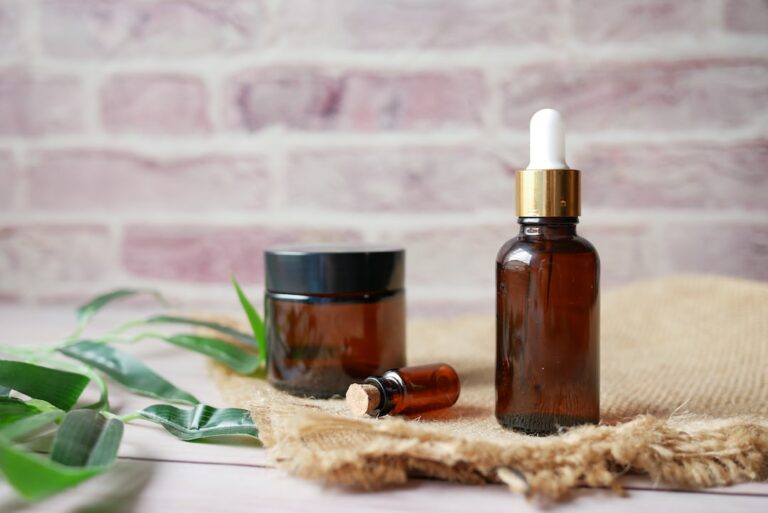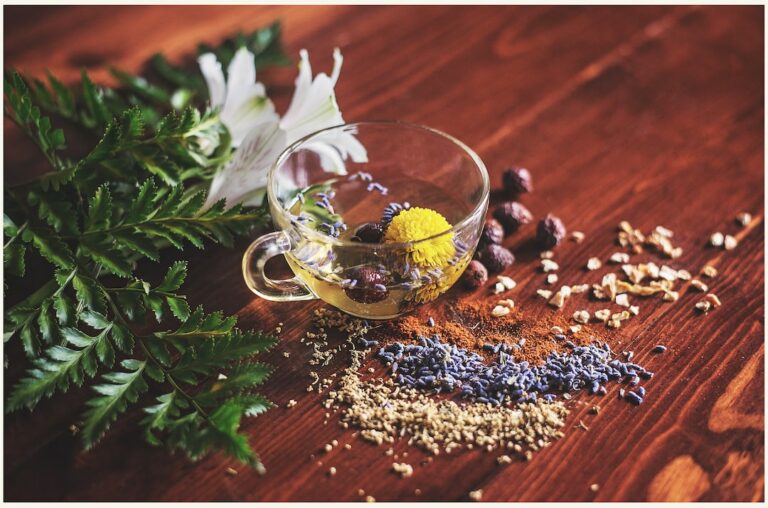Introduction
What is happiness?
Happiness is a complex and subjective emotion that is often sought after by individuals. It can be described as a state of well-being, contentment, and joy. People have different perspectives on what brings them happiness, and it can vary greatly from person to person. Some find happiness in relationships, while others find it in achieving personal goals or experiencing new adventures. It is a multifaceted concept that encompasses various aspects of life. In this article, we will explore the question: is there a herb that makes you happy?
The search for happiness
The search for happiness is an age-old pursuit that has captivated humans for centuries. In this quest, people have turned to various methods and substances, hoping to find that elusive feeling of joy and contentment. One such avenue that has gained popularity in recent years is the use of herbs. Herbs have long been used for their medicinal properties, but can they also make you happy? Many believe so. In fact, there are numerous herbs that are believed to have mood-boosting properties. These herbs, when incorporated into one’s daily routine, can potentially enhance overall well-being and promote a positive mindset. From ancient traditions to modern science, the power of herbs in promoting happiness has been recognized and explored. So, if you’re on a quest for happiness, consider exploring the world of herbs and discover the potential they hold.
Can herbs make you happy?
Yes, herbs can have a positive impact on our mood and overall well-being. Natural medicine has long been used to promote happiness and emotional balance. When it comes to eyesight, certain herbs have been found to support healthy vision and improve eyesight. These herbs are rich in antioxidants and other beneficial compounds that help protect the eyes from damage caused by free radicals and oxidative stress. Incorporating these herbs into your daily routine can contribute to better eye health and potentially enhance your overall happiness.
Herbs that promote happiness

St. John’s Wort
St. John’s Wort is a popular herb known for its potential mood-enhancing properties. It has been used for centuries as a natural remedy for depression and anxiety. This herb contains active compounds such as hypericin and hyperforin, which are believed to increase the levels of serotonin, dopamine, and norepinephrine in the brain. St. John’s Wort has also been studied for its antibacterial properties, making it a potential natural remedy for various infections. It is important to note that while St. John’s Wort may have positive effects on mood and certain health conditions, it should be used under the guidance of a healthcare professional. As with any herbal supplement, it is essential to consult with a healthcare provider before incorporating St. John’s Wort into your wellness routine.
Ashwagandha
Ashwagandha, also known as Indian ginseng or winter cherry, is a powerful herb that has been used for centuries in Ayurvedic medicine. It is known for its adaptogenic properties, which help the body cope with stress and promote overall well-being. Ashwagandha is believed to enhance mood and reduce anxiety, making it a popular natural remedy for those seeking to improve their mental health. Additionally, this herb has been found to support cognitive function, boost energy levels, and promote a healthy immune system. With its numerous health benefits, Ashwagandha is a versatile herb that can contribute to a happier and healthier life.
Lemon Balm
Lemon Balm is a popular herb known for its numerous health benefits. It has been used for centuries as a natural remedy to promote relaxation and improve mood. Lemon Balm contains compounds that have been found to have a positive effect on the brain, helping to reduce anxiety and promote a sense of calm. Research has also shown that Lemon Balm may have antidepressant properties, making it a potential herb for boosting happiness. Additionally, Lemon Balm has been used to aid in digestion and relieve symptoms of indigestion. Overall, Lemon Balm is a versatile herb that offers a range of health benefits and can be a valuable addition to any natural remedies toolkit.
How do these herbs work?

Effects on brain chemistry
There are several herbs that have been found to have a positive impact on brain chemistry. These herbs can help regulate neurotransmitters and promote feelings of happiness and well-being. One such herb is St. John’s Wort, which has been used for centuries to treat mood disorders and alleviate symptoms of depression. Another herb, Rhodiola Rosea, has been shown to reduce stress and improve cognitive function. Additionally, Ginkgo Biloba has been found to enhance memory and improve overall brain health. It is important to note that while these herbs may have positive effects on brain chemistry, they should be used in moderation and under the guidance of a healthcare professional. If you are experiencing hot flashes, it is recommended to consult with a healthcare provider to determine the underlying cause and appropriate treatment options.
Regulation of mood
The regulation of mood is a complex process influenced by various factors, including neurotransmitters, hormones, and environmental stimuli. While there is no specific herb that can directly make a person happy, certain herbs have been found to have mood-enhancing effects. For example, St. John’s Wort is commonly used as a natural remedy for mild to moderate depression, as it is believed to increase the levels of serotonin, a neurotransmitter associated with mood regulation. Other herbs such as lavender, chamomile, and lemon balm have calming properties and may help alleviate symptoms of anxiety and stress. It is important to note that the effectiveness of these herbs may vary from person to person, and it is always recommended to consult with a healthcare professional before incorporating any herbal supplements into your routine.
Reduction of stress and anxiety
Rosemary ingestion has been found to have a positive impact on reducing stress and anxiety. Studies have shown that the active compounds in rosemary can help to calm the nervous system and promote relaxation. Additionally, rosemary has been found to have antioxidant properties, which can help to protect the body from the negative effects of stress. Incorporating rosemary into your diet or using it as a herbal supplement may be a natural and effective way to support your mental well-being.
Potential risks and side effects

Interactions with medications
When considering the use of herbs for enhancing mood and happiness, it is important to be aware of potential interactions with medications. Certain herbs may interact with medications, either enhancing or diminishing their effects. It is crucial to consult with a healthcare professional before incorporating any new herbs into your routine, especially if you are currently taking medications. This will help ensure your safety and optimize the effectiveness of both the herbs and medications you are using.
Allergic reactions
Allergic reactions to herbs are uncommon but can occur in some individuals. It is important to be aware of potential allergic reactions when using herbal remedies. One herb that is known to cause allergic reactions in some people is Xanax. Xanax is a medication that is commonly used to treat anxiety and panic disorders. However, it can have contraindications and may cause adverse reactions in certain individuals. It is always recommended to consult with a healthcare professional before using any herbal remedies, especially if you have a known allergy or sensitivity to certain substances.
Digestive issues
Digestive issues can be a common problem for many individuals, especially millennials who are constantly seeking new health strategies to improve their well-being. One important aspect of millennial health strategies is the incorporation of herbs that can promote digestive health and overall happiness. While there isn’t a specific herb that directly makes you happy, there are several herbs that have been traditionally used to support digestive function and may indirectly contribute to a sense of well-being. Incorporating herbs such as ginger, peppermint, and chamomile into your diet or as supplements can help alleviate digestive issues and promote a healthier gut. These herbs have been known to reduce bloating, ease stomach discomfort, and support healthy digestion. It’s important to note that individual results may vary, and it is always recommended to consult with a healthcare professional before making any significant changes to your diet or lifestyle.
Other natural ways to boost happiness

Exercise
Exercise is an essential component of maintaining good physical and mental health. Engaging in regular physical activity has been proven to release endorphins, which are often referred to as the ‘feel-good’ hormones. These natural chemicals in the brain help to boost mood and promote a sense of happiness and well-being. Additionally, exercise can reduce symptoms of stress, anxiety, and depression, providing a natural and effective way to improve one’s overall mood. Whether it’s going for a brisk walk, participating in a fitness class, or engaging in a sport, incorporating exercise into your daily routine can have a profound impact on your happiness and overall quality of life.
Meditation
Meditation is a practice that has been used for centuries to promote relaxation, mindfulness, and overall well-being. By focusing the mind and calming the body, meditation can help reduce stress, improve concentration, and enhance emotional well-being. It involves sitting in a quiet space, closing the eyes, and directing attention to the breath or a specific object. Through regular practice, individuals can cultivate a sense of inner peace and happiness. Research has shown that meditation can also have numerous physical and mental health benefits, such as lowering blood pressure, reducing anxiety, and improving sleep quality. Incorporating meditation into your daily routine can be a powerful tool for cultivating happiness and finding balance in your life.
Healthy diet
A healthy diet plays a crucial role in maintaining overall well-being. It is important to consume a balanced combination of nutrients to support a healthy lifestyle. One key aspect of a healthy diet is taking vitamins together. Vitamins are essential micronutrients that our bodies need in small amounts to function properly. By taking vitamins together, their synergistic effects can be maximized, leading to improved absorption and utilization by the body. This can help enhance the overall effectiveness of the vitamins and promote optimal health. Incorporating a variety of nutrient-rich foods into your diet, along with taking vitamins together, can contribute to a well-rounded and nourishing approach to maintaining good health.
FAQ (Frequently Asked Questions)

Are these herbs safe for everyone?
Herbs have been used for centuries to promote overall well-being and provide relief from various health conditions. When it comes to menopause relief, many people wonder if there is a herb that can make them happy. While there are several herbs that are believed to have mood-boosting properties, it is important to consider their safety and suitability for everyone. It is always recommended to consult with a healthcare professional before incorporating any new herbs into your routine, especially if you have any existing medical conditions or are taking any medications. By doing so, you can ensure that the herbs you choose are safe and effective for your individual needs.
How long does it take for the herbs to work?
The time it takes for herbs to work can vary depending on several factors. In general, it may take a few weeks to notice any significant effects from herbal remedies. However, some herbs may provide immediate relief or have a more rapid onset of action. It is important to note that individual responses to herbal treatments can also vary. Factors such as the specific herb being used, the dosage, and the individual’s overall health and metabolism can all influence how quickly the herbs take effect. Therefore, it is recommended to consult with a healthcare professional or herbalist to determine the expected timeframe for the desired effects of a particular herb.
Can herbs replace therapy or medication?
Herbs have been used for centuries to promote health and well-being. While they can provide certain benefits, it is important to note that herbs alone cannot replace therapy or medication. One popular herb that has gained attention for its potential mood-boosting properties is ginger tea. Ginger tea has been traditionally used to support digestion and reduce inflammation. Some studies suggest that it may also have a positive impact on mood by promoting relaxation and reducing anxiety. However, it is crucial to remember that ginger tea should not be used as a substitute for professional help or prescribed medication. It is always recommended to consult with a healthcare provider before making any changes to your treatment plan. In conclusion, while herbs like ginger tea may offer some mood-enhancing benefits, they should not be seen as a replacement for therapy or medication.











































